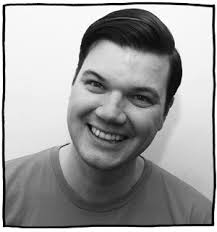"It's OK to be sad". Those five words feel like some kind of secret knowledge these days. We're told that we deserve to be happy, and that we can be, twenty-four seven. There are different ways to achieve eternal happiness, depending on who you listen to.
Big brands will sell it to you, as long as you're willing to buy more stuff that makes you feel happy when the original stuff starts to lose that power, and the internet will tell you that you can be happy by accepting and radiating "good vibes only". But neither of them will tell you how to ignore the things that can make you feel sad, or how to stop them from making you feel sad in the first place, and that's because you can't. You will feel sad sometimes, but that's OK.
It feels like everyone - especially those in the business of selling us happiness - has clubbed together and agreed to never openly admit that feeling sad is actually OK, just in case that realisation somehow makes us all stop wanting to be happy. But I have come to realise that accepting sadness is much healthier than trying to block it out and pretend everything is, and will always be, amazing. Learning to deal with your sadness is very important, because no matter how amazing your life is there will definitely be at least a few events that make you feel sad.
"The word 'happiness' would lose its meaning if it were not balanced by sadness." - Carl Jung
I have struggled with depression on and off for as long as I can remember, but I always dealt with it pretty well. Until a couple of years ago, when I started to buy into the "good vibes only" movement. I started to believe that everyone else was happy non-stop, and that I should be too. So I started trying to block out and eradicate my sadness. I became obsessed with feeling happy all the time. But while I was ignoring my sadness and chasing happiness, I became numb. My bouts of depression started to get longer and merge together, and those happy periods I used to experience started to fade away. The more I tried to feel happy, the less happy I felt.
Pretty big things were happening to me that should have made me feel happy. I had a book published, I signed a deal to write another, and my first niece was born, but none of this made me feel happy. I'd also missed the fact that little things didn't really make me feel happy anymore either, things like meeting up with friends, going outside, and eating ice cream. I'd spent so long obsessing about happiness that I forgot what it actually felt like. I'd started to see happiness as a destination rather than an emotion.
I'd started to see happiness as a destination rather than an emotion.
I realised I need to change something, because trying to be happy clearly wasn't working. So I decided to start trying to be less sad instead, which felt much more achievable. I started to do a lot of tiny things that used to make me happy, without worrying too much about whether they still did.
It took a while, but slowly I started to experience happiness again. The less I worried about being happy, the happier I became. Of course I still felt sad and hopeless from time to time. But I reminded myself what I'd always believed in the past, that it's OK to feel that way. I could get through it.
So next time you feel sad, let yourself be sad. It'll be OK, I promise. Don't worry about it too much, and don't force yourself to be happy. Accept that sometimes you're going to feel sad, and that it will pass - in the same way that happiness, anger, jealousy, and every other emotion you experience comes and goes.
Emotions are like water, they're always moving and if you're not careful they can drown you. Swimming against the tide is exhausting, and eventually it can become too much. Sometimes you have to let yourself just go with the flow for a little while.
It's OK to be happy, but it's OK to be sad, too.
How to be Happy or at least less sad by Lee Crutchley Ebury Press



